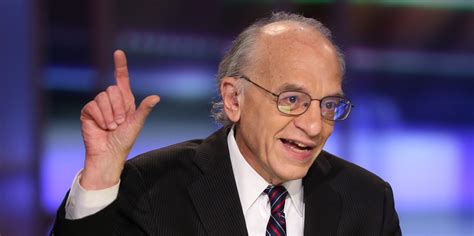A Quote by Janet Yellen
[A] major source of wealth for many families is financial assets, including stocks, bonds, mutual funds, and private pensions. ...the wealthiest 5 percent of households held nearly two-thirds of all such assets in 2013
Related Quotes
The distribution of wealth is even more unequal than that of income. ...The wealthiest 5% of American households held 54% of all wealth reported in the 1989 survey. Their share rose to 61% in 2010 and reached 63% in 2013. By contrast, the rest of those in the top half of the wealth distribution ?families that in 2013 had a net worth between $81,000 and $1.9 million ?held 43% of wealth in 1989 and only 36% in 2013.
The good thing about the dividend-paying stocks is, first of all you have stocks, which are real assets if we have some inflation. I think we're going to have 2%, 3% maybe 4%. That's a sweet spot for stocks. Corporations do well with that. It gives them pricing power. Their assets move up with prices. I'm not fearful of that inflation.
No. It is not acceptable that the 6 largest financial institutions in this country have assets of almost 10 trillion dollars, and issue half of the mortgages and two-thirds of the credit cards. That is too much wealth and power in the hands of a few. If Teddy Roosevelt were alive today he'd tell us to 'break them up.' And he'd be right. These huge banks must be broken up.
































